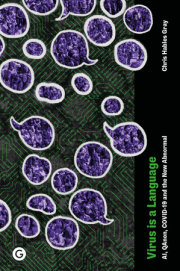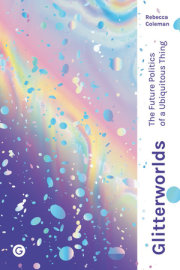Acknowledgments
Introducing a Spiraling World
Controlling Ourselves
Accelerating History
Beyond Fallacies and Illusions
The Relentless Calls of the Sirens
A very important note on language
1: Viral Principles
- On the Necessity of Speaking Virus
- The Grammar of Virus
- Viral Life Cycles
- Language is a Virus From Outside Space
2: Viral Vocabulary
- ’Ronaverse Slang
- Technical Dictionary
- Rhetorical Variants
- Hosts, Vectors, Catalysts and Controls
3: Viral Ideas
- Conspiracies: Burning Books, Bodies, Minds, 5G Towers, Fevers
- Science and COVID-19
- Spreading Vaccines
- Dangerous Cultural Contagions
4: Culturing Cultures
- Viral Evolution and Civilization
- Plagues in History
- Fashions and Fads, Status and Solidarity
- Violence Begets Violence
5: Political Contagions
- The Rise of Algorithmic Intelligence
- The Politics of Social Media
- QAnon—The Gamification of Alienation
- Why Black Lives Matter, Matters
6: Mutational Economies
- Sacred Hungers
- Surveillance Capitalism
- Going Full Circle
- Spreading Innovations and Digital Proliferations
7: Speaking Virus—Cyberpunk Style
- The Dialect of Cyberpunk
- The Panoptic Present
- Veillance and Viruses
- The Affordances of Our Cyberpunk World
8: Viral Futures—New Abnormals
- No Normal
- Weird Lessons
- Predictions and Possibilities
- Living in Pompeii
Cited Sources
Illustrations, Figures, and Tables
Index






